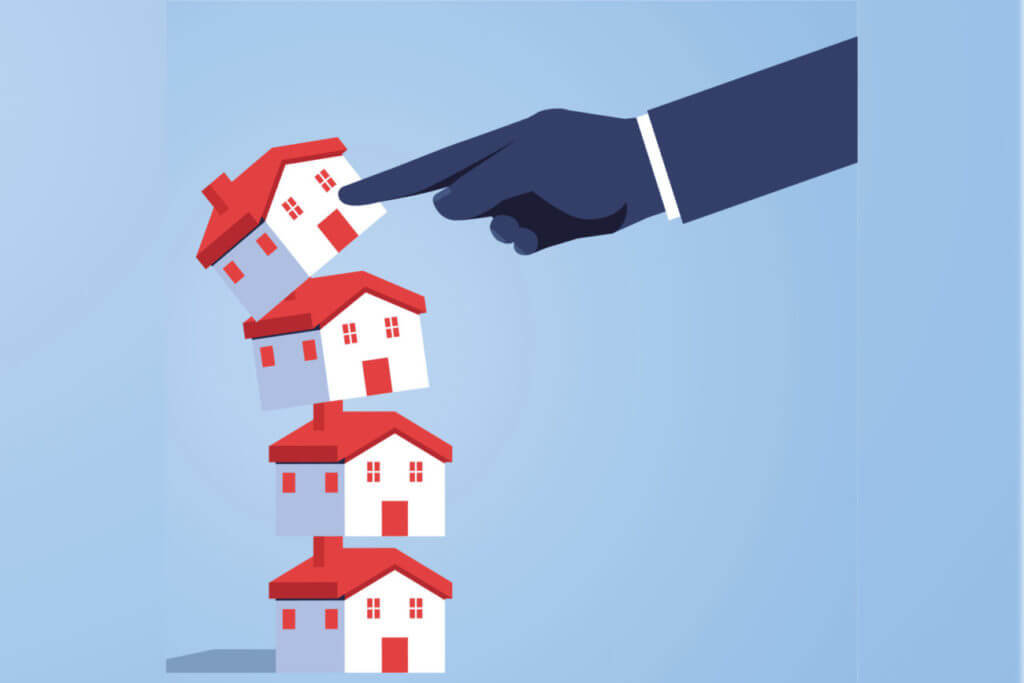2021 has been a great year for the UK property market, with prices outperforming record growth seen in late 2007. What sets 2021 apart from this previous era is that growth has been stable, as banks continue to tread carefully following 18-months of economic uncertainty as a result of Covid.
One of the sectors largest portal’s (Zoopla) has predicted we will see around 1.5 million property exchanges by the end of 2021, and this has only been possible as a result of confidence in the UK market. With the inclusion of a sizeable stamp duty holiday, along with low interest rates from most lenders, the momentum is expected to continue into 2022.
Without a crystal ball, it can be hard to know what the future holds, but many experts are not predicting doom and gloom for the property market.
What’s happening now?
A quick glance at any property website will show you the boom that is currently happening.
Low interest rates and the stamp duty holiday have meant that house prices have increased, year-on-year by more than 10%.
As the COVID-19 lockdowns have seemingly come to an end, many people have now also reassessed their lifestyles and that has meant that there is a lot of movement in the market as people now start looking for different things.
This has meant that the property market has been flooded with new buyers, all looking to make that move sooner rather than later.
More homes have now been sold during 2021 than in any year since 2007, with an estimated 1.5 million completions. However, as there are not yet enough properties on the market to satisfy every buyer, house prices have inevitably been driven skywards.
The average price of a home in the UK will be around £258,000 by the end of 2021, which is roughly in line with what is was in July 2021.
2022 house prices
Whilst it is still early to say what we can expect in the new year, experts seem confident that we are not headed towards a big drop in house prices. Some factors will have changed, for example, the stamp duty holiday will have come to an end, and interest rates are expected to rise gently.
Nevertheless, demand will still be there, with estimates suggesting that more than a fifth of households planning to move over the next 18 months, and this will support the house price bubble while ever it outstrips supply.
One of the big factors in people wanting to move house has been the shift towards remote working.
This is now more prevalent than ever before, and it has meant that buyers are wanting something different from their homes.
It might be that they are looking for a dedicated workspace at home or that they now no longer feel the need to be in built up areas that are close to work.
Many now want open spaces, gardens and access to the great outdoors, whilst others who have felt isolated may want to move closer to friends, family and facilities.
There are concerns about unemployment levels, as the end of the furlough scheme takes effect, but many economists are predicting a robust recovery as 2021 comes to an end.
It is therefore believed that house price inflation will average between 3% and 5% each year until the end of 2024.
The massive movement of houses in 2021 is not likely to disappear in a hurry, and many expect this similar trend of sales which are higher than pre-pandemic levels to continue to some time to come.
The areas of the UK that are expected to show the strongest house growth next year are the Midlands and the North of England as they tend to have a greater capacity for growth.
The addition of the HS2 rail services will also serve to offer these areas better connections to other areas of the country, meaning that commuting is more practical.
London may be the area which underperforms with prices only growing by between 1% and 1.5% each year until the end of the cycle in 2024.
The increase in house prices is likely to tempt more sellers into the market, which will stabilise prices a little, but most experts expect that there will still not be enough housing stock to cope with the massive current demand.
The rental market
Thanks to low interest rates, monthly rent was officially cheaper in 2021.
It is thought that rental prices will grow by as much as 9.5% by 2025, as demand remains high.
This means that many forecast that rental growth will remain sustainable in the coming years.
The time to buy
This rise in prices has left many people wondering whether now is the right time to buy. Should they buy now before prices soar even further or wait in the hope that they come back down?
As with any house move, this will largely depend on your own personal circumstances and your reasons for wanting to move.
Business investment is also predicted to rebound next year, which is likely to support the economy further and provide extra stability.
However, some sectors which have been hardest hit by the pandemic are likely to take longer to recover.
If the house that you want to buy is available and affordable then waiting could be a risky business.
The current low interest rates mean that there are some very favourable mortgage deals available for those with a healthy deposit, making it a good time to snap something up.
If your deposit is more modest, the government’s mortgage guarantee scheme is set to return to make this a little easier.
Overall, it looks as those house prices might level out a little, but predicting any clear trends at the moment is quite difficult.
Make sure that any house move that you make is something that you are able to afford and that you have planned for as many eventualities as possible.

